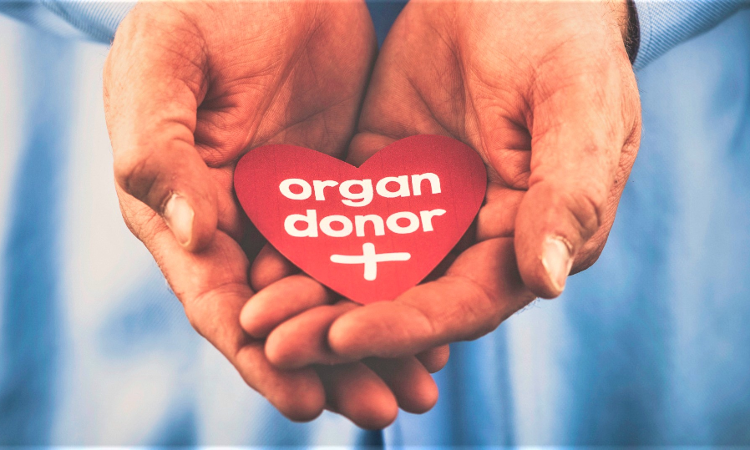- Home
- /
- High Courts
- /
- Bombay High Court
- /
- Need For Organ Transplant Is A...
Need For Organ Transplant Is A Facet Of Right To Life: Bombay HC Orders Separate Registration List For Patients Potentially Needing Transplant
Narsi Benwal
2 May 2025 2:09 PM IST
The Bombay High Court while observing that the human need for organ transplant is a facet of right to life under Article 21 of the Constitution of India, ordered the Zonal Transplant Coordination Centre at Pune and the Maharashtra government to consider whether a separate registration facility could be provided to the category of patients, who may not be on dialysis or any other procedure but...
The Bombay High Court while observing that the human need for organ transplant is a facet of right to life under Article 21 of the Constitution of India, ordered the Zonal Transplant Coordination Centre at Pune and the Maharashtra government to consider whether a separate registration facility could be provided to the category of patients, who may not be on dialysis or any other procedure but in future may imminently need a an organ transplant.
A division bench of Justices Girish Kulkarni and Advait Sethna ordered the authorities to file their responses to the petition filed by one Harshad Bhoite, a Pune resident, who petitioned the bench against the decision of the Zonal Transplant Coordination Centre at Pune, which refused to register him for organ transplant.
The judges noted that the petitioner is a patient of Chronic Kidney Disease (CKD) Stage-V, but not on dialysis and that due to polycystic kidney disease, he would require a kidney transplantation from a cadaveric donor, as he was not having a suitable donor in his family. However, the Zonal Centre refused to get the petitioner registered citing the Allocation Criteria for Deceased Donor Kidney Transplant Guidelines, specifically clause 3 which mandates that the patient should be a case of end stage renal disease (ESRD) on maintenance dialysis for more than three months on regular basis.
Arguing for the petitioner, Dr Uday Warunjikar told the judges that his client would need a kidney transplant in the near future and that at the time when the need for kidney transplant becomes absolutely necessary, he should not be put to a prejudice and/or an unwarranted ordeal of being required to wait in a long queue for transplant, for want of timely registration.
"The concern of the petitioner is that the right to life also would include right to receive an organ transplant and for which he needs to be registered so that in the event dire urgency arises, and on medical certification he becomes entitled to receive a kidney," Warunjikar argued.
Agreeing with Warunjikar, the bench in its April 30 order, said, "The human need for an organ transplant is directly a facet of right to life as guaranteed under Article 21 of the Constitution of India. Prima facie, a situation cannot be countenanced that when for any patient there is a need of an organ transplant, which might not be immediate but is imminent and/or in a situation that the patient is immediately not on dialysis, however, it is certain that in the near future the need for a transplant would arise, considering the medical condition of the patient, such situation would also be required to be paid attention by the respondents."
The bench pointed out that the object and intention of the Transplantation of Human Organs and Tissues Act, 1994 is to provide for the regulation of removal, storage and transplantation of human organs and tissues for therapeutic purposes and for the prevention of commercial dealings in human organs and tissues and for matters connected therewith or incidental thereto.
"It is in the context of these objects and intention, the provisions of the 1994 Act would be required to be construed and considered, while recognising the right to life of a patient. The provisions of the rules and any guidelines framed thereunder are required to be interpreted and recognised in such context when it concerns kidney/organ transplant," the bench observed.
However, the consideration of these issues and/or framing of rules and guidelines is the domain of the respondents. Our concerns in the present proceedings is limited, and to the effect that the statutory and Constitutional rights of the petitioner are recognised and remain protected," the bench made it clear.
"We are of the opinion that it would be appropriate for the respondents to consider whether a separate registration facility could be provided to those patients, who in future would imminently require an organ transplant, so that as and when the need for a transplant arises, such list can be operated on proper medical certification and such persons can be recognised to receive an organ for a transplant," the bench opined.
The judges clarified that its directive is from the aspect that an ease of procedure for such category of patients would obliviate their difficulties in having a registration at the appropriate time and not after the patient gets critical or his medical condition deteriorates.
"When the health and life at such stage of the patient itself is rendered delicate and worrisome, any procedure for such basic requirement of registration needs to be of absolute ease and comfort. An appropriate response in this regard be considered and placed before the Court on the adjourned date of hearing," the bench ordered.
Appearance:
Advocates Dr. Uday Warunjikar, Jenish Jain, Dilip Pandharpate and Siddhesh Pilankar appeared for Petitioner.
Government Pleader Neha Bhide along with Assistant Government Pleader PJ Gavhane represented the State.
Advocates Shehnaz Bharucha and AA Ansari represented other Respondents.
Case Title: Harshad Bhoite vs State of Maharashtra (Writ Petition 3048 of
Click Here To Read/Download Order



